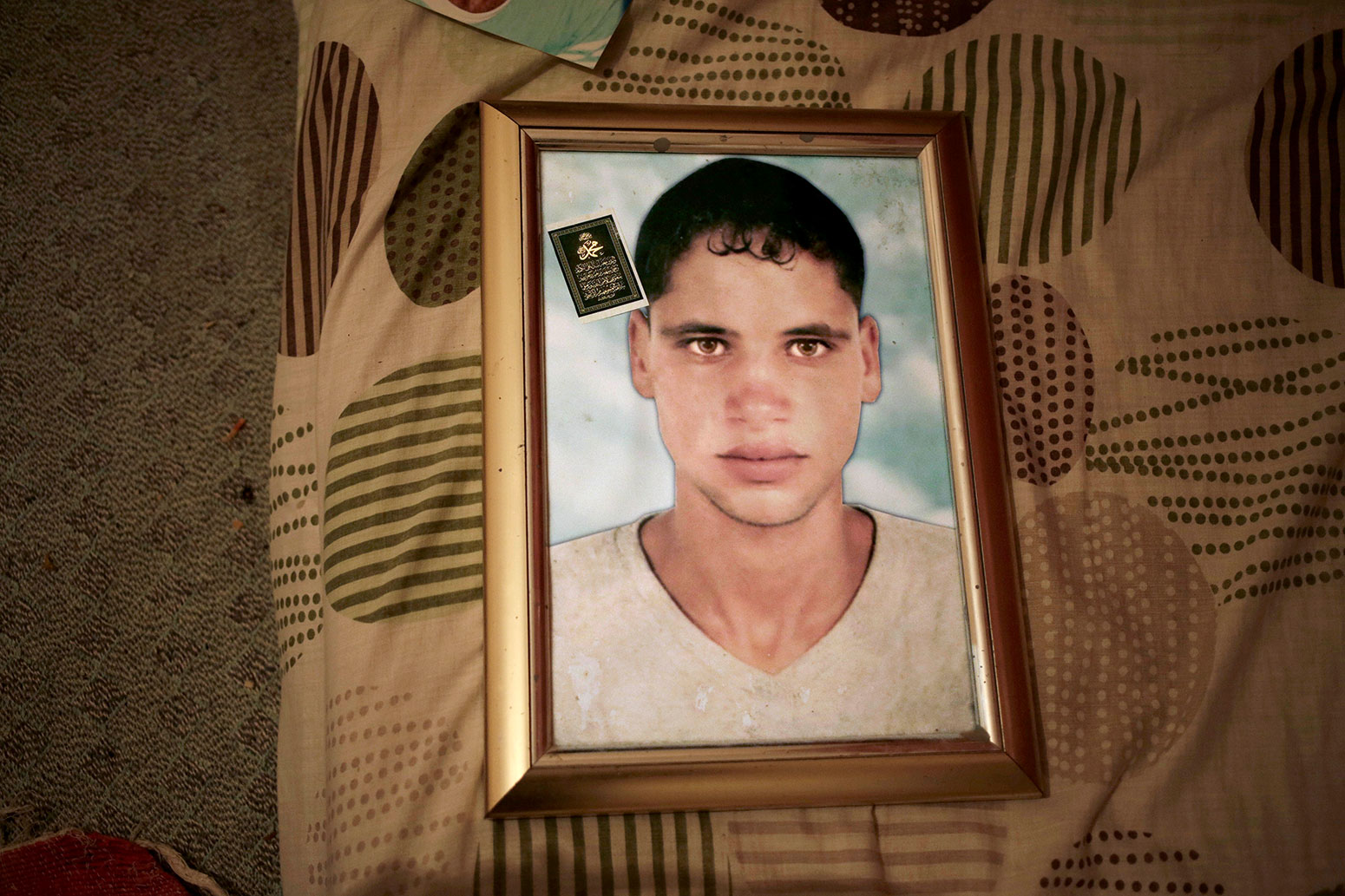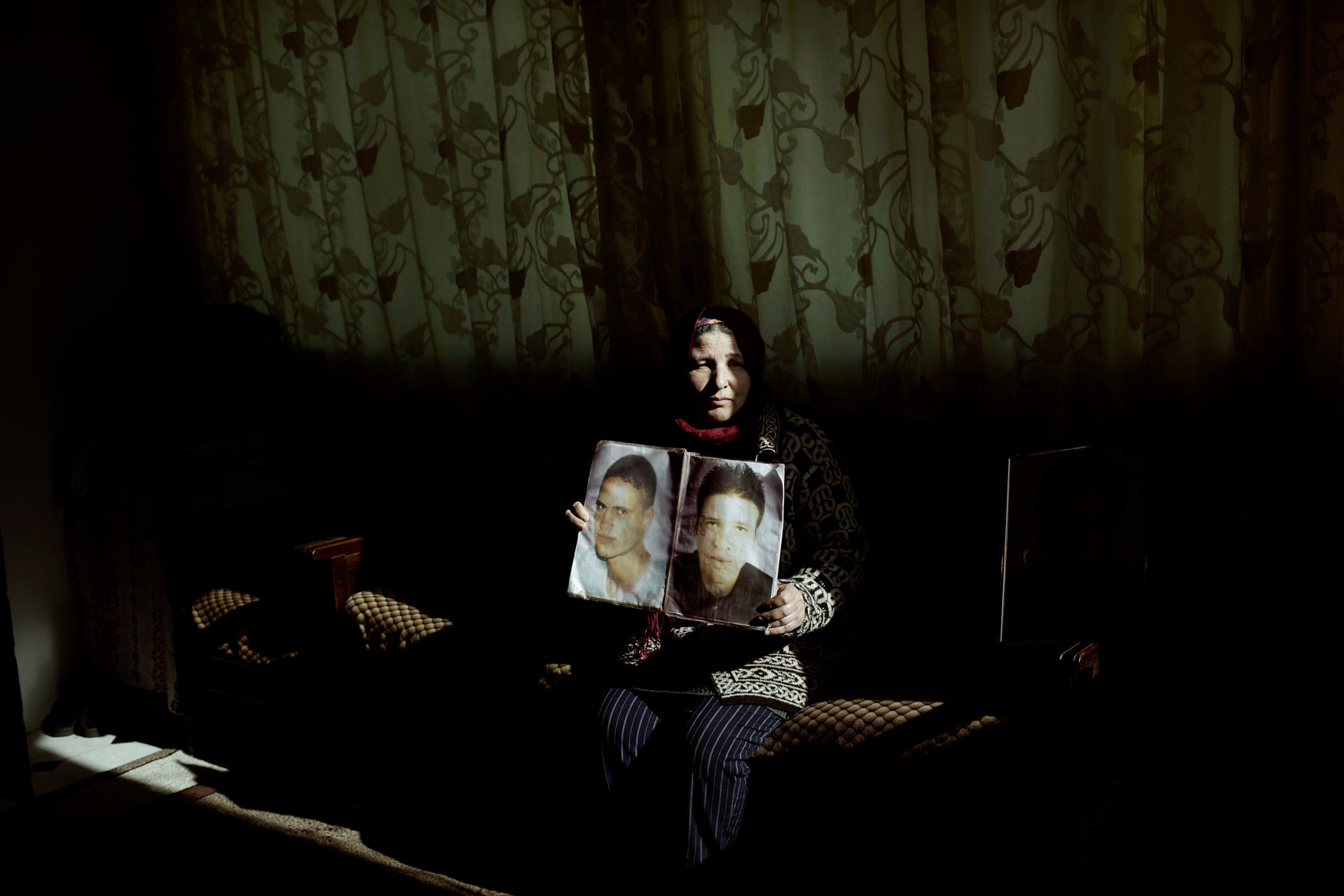In Tunisia, the sea takes migrants and brings back bodies

The boys grew up within sight of the sea that took them away, rambling along paths and climbing rocks that would later be the launching pad for their flimsy rafts.
The Mediterranean has been robbing Tunisia of its young, who abandon their homeland in hopes of a better life in Europe. At the closest points, Ras Jebel in the north and the Kerkennah Islands in the east, it’s a half-day sail if all goes well.
But the sea often swallows the rafts whole, and their passengers disappear without a trace.
This Saturday, April 14, 2018 photo shows Ras Jabal, Tunisia. (AP Photo/Nariman El-Mofty)
Migrants who go missing are a daily reproach to political failure, so there is rarely an official count of the departed, the dead or the disappeared. However, an Associated Press tally has documented at least 56,800 migrants dead or missing worldwide since 2014 _ almost double the number found in the world’s only official attempt to count them, by the U.N.’s International Organization for Migration.
This includes the 11 young Tunisians who disappeared off the coast on May 7, 2011, and were never counted by their government. They left behind parents and siblings, who on a clear day can see the island where the boat crashed against the rocks and sank. Their photos, school notebooks and clothing for the most part remain untouched in their rooms. In case they return.
This Sunday, April 15, 2018 photo shows the "Cemetery of the Unknown," where migrants who were found dead on nearby shores are buried, in the port town of Zarzis, Tunisia. (AP Photo/Nariman El-Mofty)
Often the tides of the Mediterranean bring ashore instead the bodies and belongings of others who attempted a similar migration _ those from distant countries who hoped that the beaches of North Africa would be their last stop before Europe. These migrants have already traveled thousands of miles just to reach the Mediterranean coast, where their journey stops abruptly.
This Monday, April 16, 2018 photo shows a boat that carried migrants at the coastal city Monastir, Tunisia. (AP Photo/Nariman El-Mofty)
The belongings are painstakingly gathered by an artist who tries to create beauty out of sorrow _ a torn pink bra, a child’s worn jacket, a pack of cigarettes. And the bodies are retrieved by a retired fisherman, who has made it his life’s work to provide a proper burial to the foreigners even though they die without a name.
In this Saturday, April 14, 2019 photo, Ahmed Ayouby, 32, smokes a cigarette at the beach where migrants leave for Italy, in Ras Jabal, Tunisia. (AP Photo/Nariman El-Mofty)
In this Saturday, April 14, 2018 photo, Khaled Arfawy, 25, who wants to leave Tunisia, poses at the beach where migrants leave for Italy, in Ras Jabal, Tunisia. (AP Photo/Nariman El-Mofty)
In this Saturday, April 14, 2018 photo, Mounir Aguida, 30, who wants to leave Tunisia, stands at the beach where migrants leave for Italy, in Ras Jabal, Tunisia. (AP Photo/Nariman El-Mofty)
This Saturday, April 14, 2018, photo shows the beach from where migrants leave for Italy, in the town of Ras Jabal, Tunisia. (AP Photo/Nariman El-Mofty)
This Thursday, April 12, 2018 photo shows a framed portrait of Radya Jejli, who went missing in 2011, in his bedroom in the town of Ras Jabal, Tunisia. (AP Photo/Nariman El-Mofty)
This Thursday, April 12, 2018 photo, the father of Majdi Al Barhoumi, who went missing in 2011, holds photos of him at their home in Ras Jabal, Tunisia. (AP Photo/Nariman El-Mofty)
In this Thursday, April 12, 2018 photo, Mounira Abu Shakra weeps as she talks about her son, Amin Bin Hussein, who went missing while migrating to Italy, in Ras Jebel in Bizerte, Tunisia. (AP Photo/Nariman El-Mofty)
This Thursday, April 12, 2018 photo shows the outskirts of Ras Jabal, Tunisia. (AP Photo/Nariman El-Mofty)
In this Thursday, April 12, 2018 photo, Fathia Jejli holds a photo of her son, Hossam Edin Jejli, right, and her nephew, Hamed Ben Brayek, who went missing in 2011, at her home in the town of Ras Jabal, Tunisia. (AP Photo/Nariman El-Mofty)
“Europe is protecting its borders but has no interest in the human beings,” said Chamsedding Marzouk, the former sailor who maintains the cemetery of the unknown as a volunteer. “Who will visit the graves of our relatives when they die? Who will visit these graves? Who will weep for them?”
Text from the AP news story, In Tunisia, the sea takes migrants and brings back bodies, by Nariman El-Mofty and Lori Hinnant.
Photos by Nariman El-Mofty
Visual artist and Journalist
























